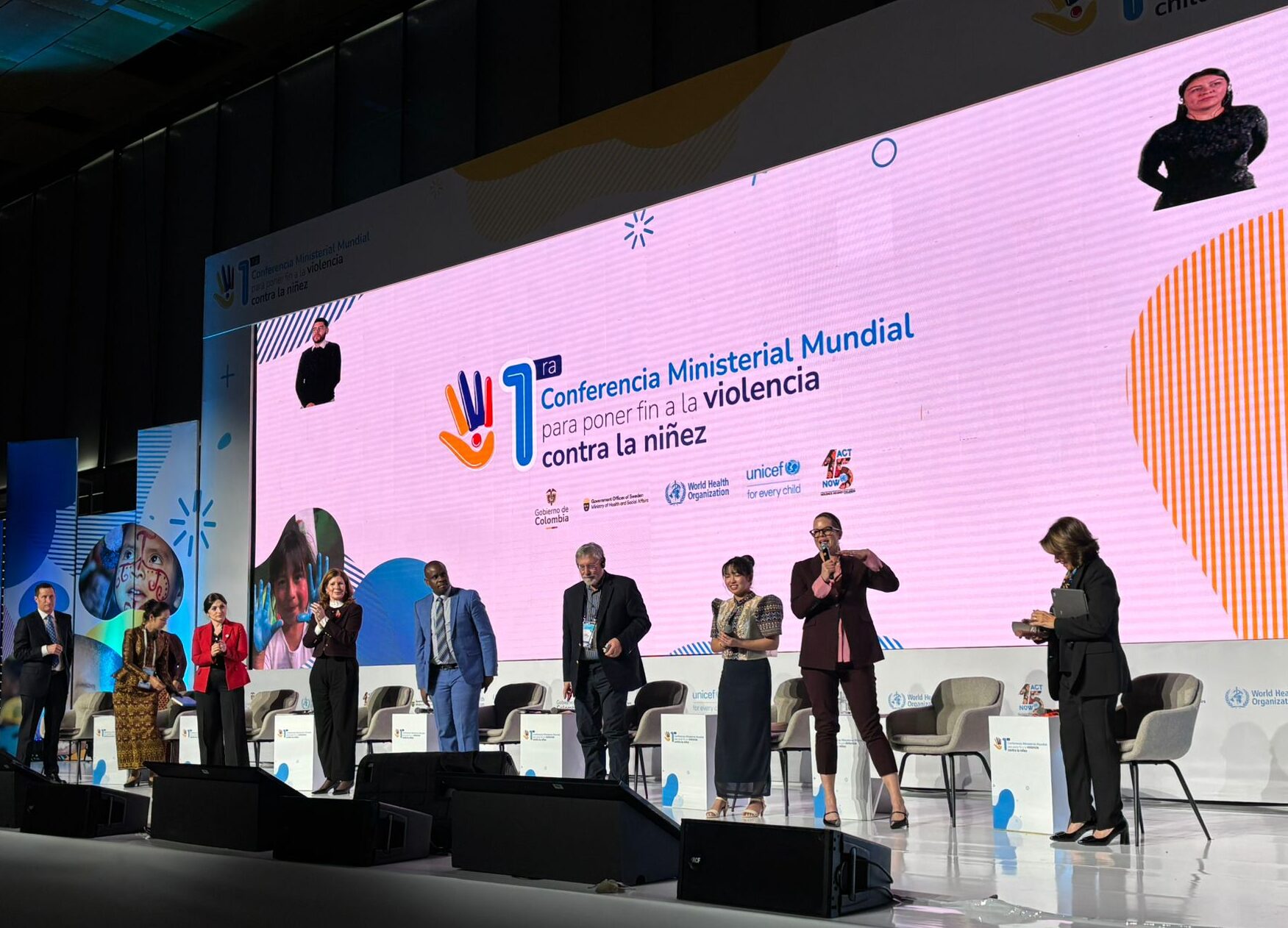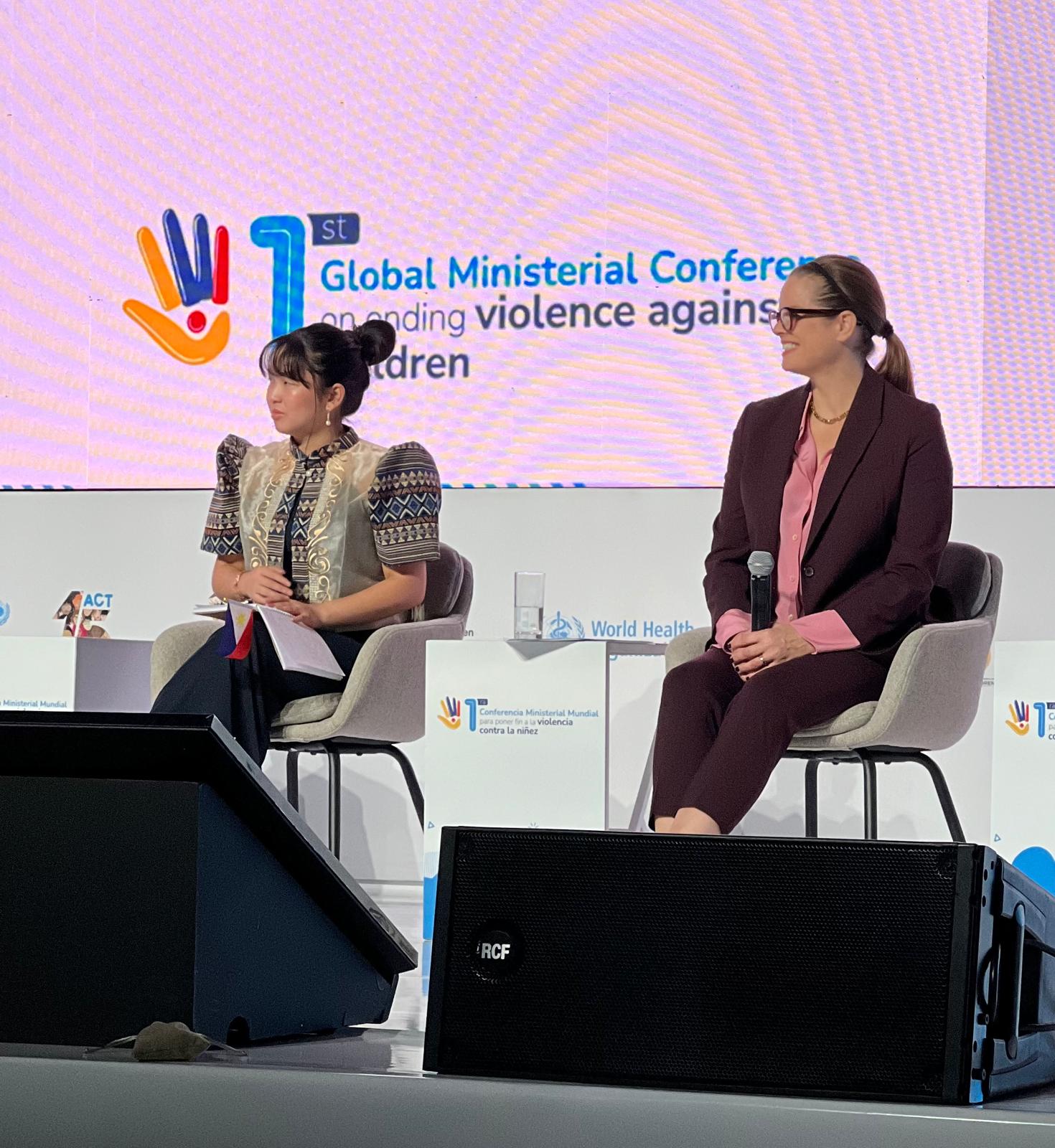Funding Announcement at the Ending Violence Against Children Ministerial 2024
During the first ever Ministerial dedicated to ending violence against children, CIFF’s CEO, Kate Hampton, announced an intention to commit $125 million over the next 5 years towards initiatives protecting children from harm.
This funding will support work on preventing and ending child marriage in India and Africa – ensuring girls are valued and empowered to live in safe and supportive environments, embedding child protection in our work on girls’ education, reducing online harm and centering survivor voices.
___________________________________________
Read the full transcript of Kate’s remarks below:
A huge thanks to the co-hosts and very importantly to their teams who have pulled this conference together.
So, to talk about the money now, we are in a situation of immense fiscal stress around the world. 3 billion people are living in countries that spend more on debt servicing than they do on health or education. As a consequence, I find it extraordinarily uplifting that so many low- and middle-income countries have come to this conference and made bold commitments to protect children.
We need an unassailable business case to make finance ministers and heads of state want to invest in preventing violence against children. We’ve heard parts of it from Bessel we’ve heard parts of it from Bryana, this is an incredibly dangerous problem but it is also one that is eminently solvable.
We’ve heard so much from survivors here and actually the horrendous and, to use the word of the Colombian president, grotesque prevalence of this issue, is also something that we can turn into an asset because everybody knows, loves or has experienced a person that has been abused in some way. Everybody.
So we can build a whole of society approach, including online, that moves beyond individual projects and organizations to an ecosystem approach something that achieves the scale that’s required. We’re on the cusp of a movement now – this conference is the first expression of that – that can bring together the evidence and the data and can shine the light on many of these examples that have been so positive. That is the business case. We have to show that there is a return on investment and that it is achievable and it deserves the attention of everyone.
So I just wanted to turn quickly to the role of philanthropy. I am an environmentalist and I don’t know if all of you know about forest ecology, but under every forest floor is what is called mycelium which is the fungal networks that directs resources and water. You only see the trees but under the ground there’s a lot going on. I see philanthropy as the mycelium, I see you all as the trees – especially the survivors and the young people. Philanthropy needs to come together and help create the kinds of resource flows that will enable this movement to emerge strong, powerful and compelling.
CIFF, the Children’s Investment Fund Foundation – today we’re making a commitment of $125 million that we intend to spend next few years. But this is not a gift this is an investment. This is an investment in partnership with all of you. This is an investment in sharing and learning. This is an investment in survivor voices. It’s an investment in children and youth stepping up. It’s an investment in government allies, business allies and religious leaders. It must be an investment in leadership and it must be an investment in accountability because to echo the words of the special representative and Dr Tedros, this is only the beginning and as Bryana said we can break the intergenerational cycle but we must do it in this generation. We don’t want hundreds more years of this. So come together, mobilize resources because with success and momentum and stories and relationships that is how we mobilize the funds we need to break the cycle of violence in this generation.

